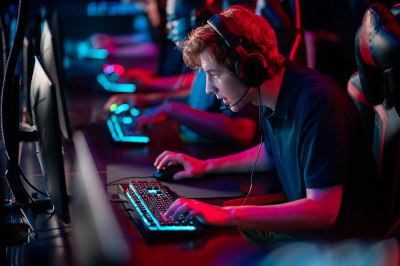The Psychology of Esports Players
3 min
Esports has become a global phenomenon, with millions of players and fans tuning in to watch the best in the world compete in popular games like League of Legends, Dota 2, and Counter-Strike: Global Offensive. While the physical skills of these players are impressive, the mental game is often what separates the best from the rest. Understanding the psychology of esports players is key to helping players perform at their best and to understanding the sport as a whole.
Motivation and Goal Setting
One of the most important psychological factors in esports is motivation. Esports players often have high levels of intrinsic motivation, meaning they play for the love of the game and the challenge it presents. This type of motivation is associated with increased engagement and better performance. Additionally, setting specific and achievable goals can also help players stay motivated and focused. For example, a player may set a goal to reach a certain rank or to win a tournament.
Stress management
Another important factor is stress management. Esports players often face intense pressure, both from the competition and from their own expectations. This pressure can lead to stress, anxiety, and burnout. To be successful, players must learn how to manage stress effectively, whether through techniques like deep breathing, visualization, or simply taking time to unwind and recharge.
Mental Toughness
A third important factor is mental toughness. Players must be able to stay focused, perform under pressure, and recover quickly from setbacks. Mental toughness can be developed through training, such as mindfulness and stress-management techniques, as well as physical training to increase physical endurance.
Concentration and Attention
Concentration and attention are critical skills for esports players, as they must be able to react quickly and accurately to a rapidly changing virtual environment. To improve these skills, players can engage in activities that challenge their attention, such as playing games that require quick reflexes, or practicing mindfulness meditation.
Confidence
Finally, confidence is also an important factor in esports. Confidence in one’s abilities is critical for success, as it allows players to take risks and make bold plays. However, too much confidence can also be a double-edged sword, as it can lead to overconfidence and arrogance. Players must find a healthy balance between confidence and humility in order to perform at their best.
In conclusion, understanding the psychology of esports players is key to helping these players perform at their best and to understanding the sport as a whole. Whether it’s motivation, stress management, mental toughness, concentration or confidence, these mental factors play a critical role in the success of competitive gamers.
References
Dorn, T. (2019). The Mental Game in Esports: An Overview. Journal of Gaming & Virtual Worlds, 11(2), 113-126.
Friese, M., & Mühlberger, A. (2019). Fear of failure and achievement motivation in competitive video gaming. Journal of Media Psychology, 31(3), 113-123.
Kim, H. J., Park, S. H., Lee, J. H., & Lee, Y. S. (2015). The effect of stress management training on stress, anxiety, and depression in professional video game players. Cyberpsychology, Behavior, and Social Networking, 18(7), 376-381.
Steenbeek, H., & Elbe, A. M. (2017). The role of motivation in the development of expertise in esports. International Journal of Gaming and Computer-Mediated Simulations, 9(2), 1-15.
Tomporowski, P. (2008). Exercise and cognition: An update on physical activity and brain function. Brain Plasticity, 3(2), 115-133
Russell, K. (2020). The psychological skills needed for success in esports. Psychology Today.
